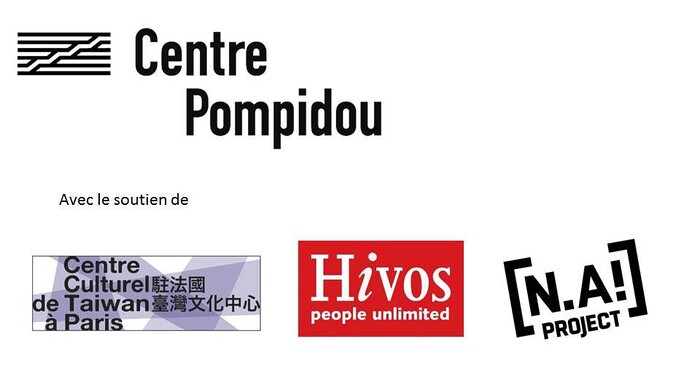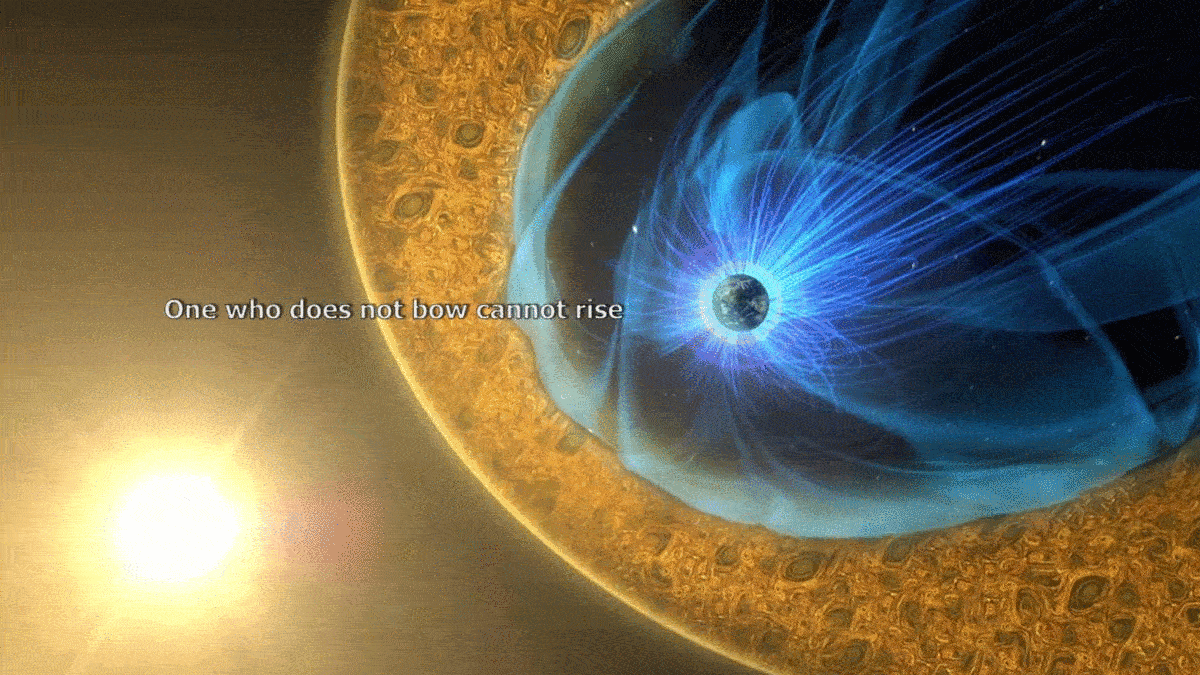October 23–December 23, 2019
Julieta Aranda / Adrián Balseca / Adriana Bustos / Cao Minghao and Chen Jianjun / Carolina Caycedo / Chang En-Man / Benvenuto Chavajay Ixtetelá / Emo de Medeiros / Valentina Desideri and Denise Ferreira da Silva / Denise Ferreira da Silva and Arjuna Neuman / Fernando García-Dory - INLAND / Clarisse Hahn / Hao Jingban / He Xiangyu / Sky Hopinka / Karrabing Film Collective / Sam Keogh / Francois Knoetze / Nandita Kumar / Lin Chi-Wei / Liu Chuang / Taus Makhacheva / Sandra Monterroso / Fangas Nayaw / Claudia Peña Salinas / Qiu Zhijie / Lisa Reihana / Tabita Rezaire / Buhlebezwe Siwani / Yasmin Smith / Dimitar Solakov and Nedko Solakov / Simón Vega / Walking Grass Agriculture / Tricky Walsh / Munem Wasif / Yu Guo
The platform
Cosmopolis focuses on research-based and collaborative art practices, constructing bridges between new forms of creative experimentation and critical vocabularies from contemporary theory, between reconceived geographies and histories. Through residencies, exhibitions, discursive programs and publications, it engages with artists whose work is concerned with the production of relationships and the exchange of knowledge. Cosmopolis #1: Collective Intelligence (2017, Paris) focused on new forms of artistic collaboration, while Cosmopolis #1.5: Enlarged Intelligence (2018, Chengdu) saw artists envisioning how to draw on artificial and ecological intelligence towards collectively defined ends.
Cosmopolis #2
Today there is widespread discussion of the post-human, yet many artists and such path-breaking interdisciplinary thinkers as Sylvia Wynter and Silvia Federici remind us that most humans have been excluded from “universal” formulations of the human and the idea of humanity. The European Renaissance fashioned “man” to the exclusion of women and non-Christians, the latter increasingly defined through the invented paradigm of “lesser races.” By the time of the industrial revolution in the 18th century, these philosophical formulations of humanity went hand in hand with a “civilizing” ideology that advocated for scientific rationality and technology’s ability to improve living conditions. European “Enlightenment” conceptions of the human were promoted within régimes of expropriation of resources, labour and reproductive capability. The technological, industrial and ecological transformations linked to the development of global capital in the modern era are inseparable from the racist and misogynist degradation of the horizon of humanity. This particular project of modernization, widely presented with the force of teleological inevitability, is today brought into question as one history, among many other possible paths not taken, of the evolution of technology and society.
Cosmopolis #2 explores how other cosmologies, economic systems and geographic articulations contain the bases of alternative social and technical configurations. It brings to the fore the possibilities of technological diversity, as well as the question of appropriate scale through artistic inquiries into how small-scale and differently configured social formations can generate other models and value systems—networking smaller units, de-industrializing and cultivating a fine attention to process and social rhythm. In his project Seeds Shall Set Us Free II, artist Munem Wasif works with the grain bank UBINIG, founded in 1984 by a group of activists in Bangladesh to support rice biodiversity and local agricultural knowledge, in a context where these were curtailed by Indigo and Jute cultivation imposed for the world market by the British colonial system. Sichuan-based artists Cao Minghao and Chen Jianjun interweave in their Water System project questions of landscape, livelihood, climate change and the creation of alternative futures through small-scale actions with their collaborators, who include a farmer self-managing a reforestation project and a Qiang community creating a school of cultural traditions and sustainable living. French artist Tabita Rezaire conducts research into celestial technologies—notably the stone circles of Senegambia that date back to between the 7th and 15th centuries—drawing on astronomy, divination techniques, archeology and oral history to consider the implications today of effaced cosmological frameworks.
The project connects questions of scale and technological divergence to artistic explorations of the entanglement of the human and the non-human and of alternatives to neoliberal individualism, as seen notably in the critical propositions of key contemporary artist theorists Denise Ferreira da Silva and Elizabeth Povinelli, who bring into resonance ideas stemming from quantum thinking and diverse cosmological systems. In the context of Cosmopolis #2, Povinelli, a member of the Karrabing Film Collective, presents their recent cinematographic exploration of toxicity and indigenous agency, The Mermaids, or Aiden in Wonderland. Da Silva’s Sensing Salon collaboration with Valentina Desideri undertakes a reading of Cosmopolis #2 using tools such as tarot, astrology, political therapy and reiki in order to generate alternative vocabularies and frameworks for interpretation.
The program
Talks, workshops, performances and screenings related to the key themes of Cosmopolis #2 are presented throughout the project.
#1: Technology and difference (October 25–26)
Talks: Tabita Rezaire + Nishant Shah / Emo de Medeiros + Francois Knoetze + Tricky Walsh / Maya Indira Ganesh + Yuk Hui + Clapperton Chakanetsa Mavhunga + Mi You
In collaboration with Digital Earth
#2: Cosmopolitan rurality (November 1–2)
Talks: Nicu Ilfoveanu + Marta Jecu + Anca Maria Panoiu / Frédérique Aït-Touati / Fernando García-Dory + Confederacy of Villages / François-Xavier Gbré + Yo-Yo Gonthier
In collaboration with [N.A!] Project
#3: Decolonial ecology (November 8–9)
Talks: Maria Theresa Alves + Nataša Petrešin-Bachelez / Valentina Karga + Elena Mazzi + Chiara Sgaramella
Workshops: Council / Yasmin Smith
In collaboration with [N.A!] Project
#4: The Superhero Summit (November 15–16)
Performances: Lav Kontinović + Nissan Patrol + Super Sohrab + Super Taus
Screening: “Supermen of Malegaon” by Faiza Ahmad Khan
Summit: Sabih Ahmed + Zaal Andronikashvilli + Sybil Collas + Leone Contini + Sohrab Kashani + Lav Kontinović + Taus Makhacheva + Raqs Media Collective + Super Sohrab + Super Taus + Jennifer Teets + Deepak Unnikrishnan + Lantian Xie
Produced by KADIST
#5: masingkiay - co-creating a collective (November 20–24)
Performances, talks and workshops by Fangas Nayaw
With the support of Centre culturel de Taïwan à Paris
#6: The Right to Research (November 29–30)
Performances: Louise Hervé + Chloé Maillet
Talks: Heba Amin / Julieta Aranda + Chus Martínez + Mpho Matsipa / Arjun Appadurai + Senam Okudzeto / Yann Beauvais + Angela Melitopoulos + Elizabeth Povinelli
In collaboration with the École nationale supérieure d’arts de Paris-Cergy
#7: Technologies of the rural (December 6–7)
Screenings: Chia Wei Hsu + Kao Junn Honn + Liu Yujia + Lo Lailai + Mao Chenyu
Talk: Zhang Hanlu
Workshop: Walking Grass Agriculture
#8: Implications (December 13–14)
Talks: Leanne Betasamosake Simpson / Denise Ferreira da Silva
Workshops: The Sensing Salon
In collaboration with Columbia University Global Centers | Paris
Thursdays at 6:30pm: talks with Cosmopolis #2 artists
Sundays at 2pm: activation of Simón Vega’s Barter Station in his installation Archipiélago de Intercambio
Sundays at 4:30pm: Lin Chi-Wei’s collaborative performances Tape Music, Calligraphy and Talking Knots
October 24; November 14 and 28; December 12: Music as Knowledge concert program
October 25; November 1, 8, 29; December 6 and 13: Collective Thinking reading group
November 17 and 28: Sam Keogh presents his performance Untitled
The digital platform
Designed by Alan Woo as a tool for research and knowledge sharing, the Cosmopolis platform will live stream events and present multimedia content curated by the exhibition team and invited guests. It has been developed with the exclusive support of [N.A!] Project.
Cosmopolis #2: rethinking the human is curated by Kathryn Weir with associate Cosmopolis curator Ilaria Conti and in collaboration with associate curators Charléne Dinhut and Zhang Hanlu. The Music as Knowledge concert series is curated by Kemi Bassene. The Collective Thinking reading group is presented in collaboration with Micol Bez.


